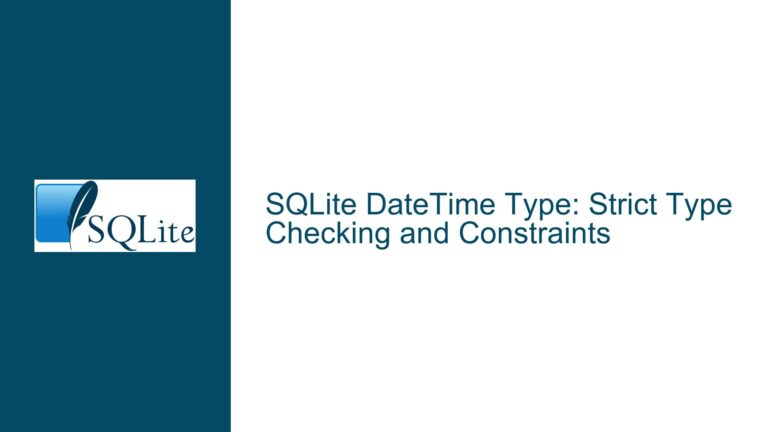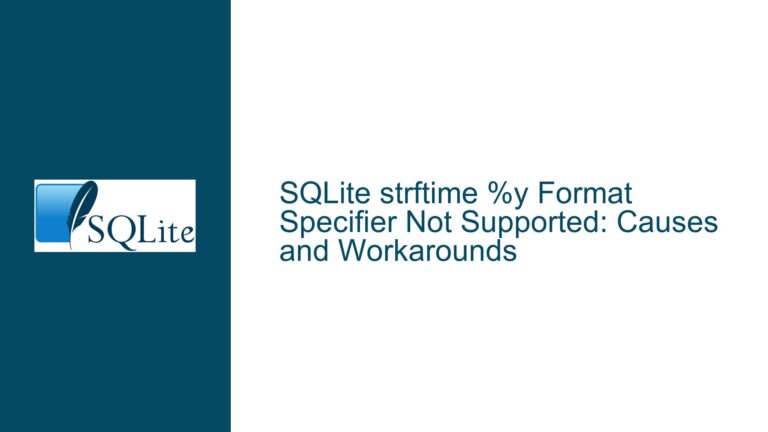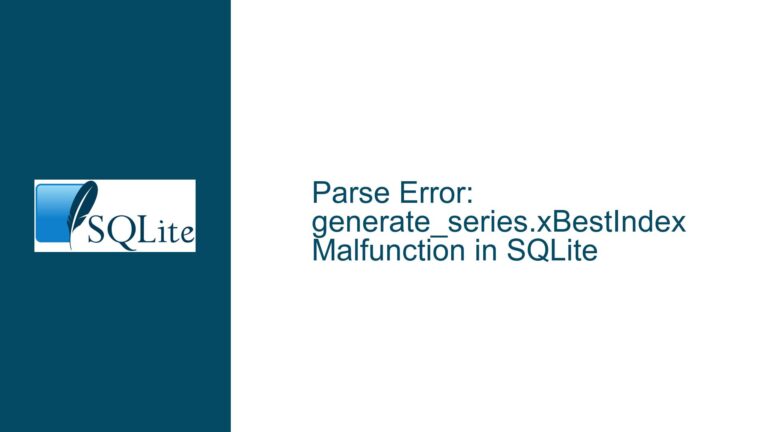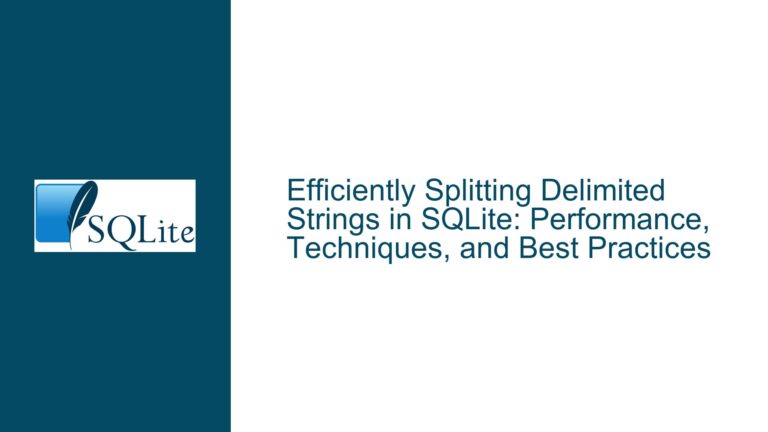Computing SHA3-256 Hashes for SQLite Downloads on Windows
Issue Overview: Computing SHA3-256 Hashes for File Integrity Verification on Windows When working with SQLite on Windows, particularly when downloading precompiled binaries such as DLLs or tools from the official SQLite website, verifying the integrity of these files is a critical step. This ensures that the files have not been tampered with or corrupted during…









